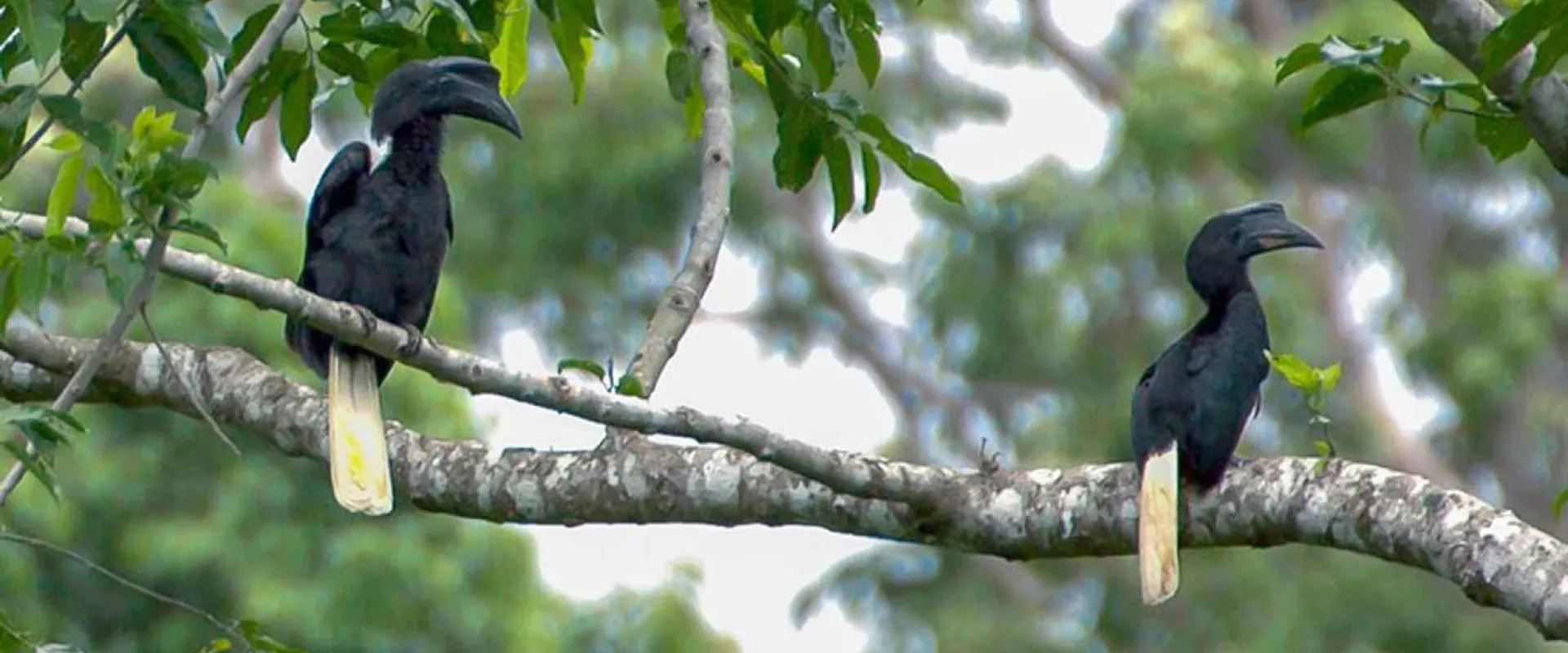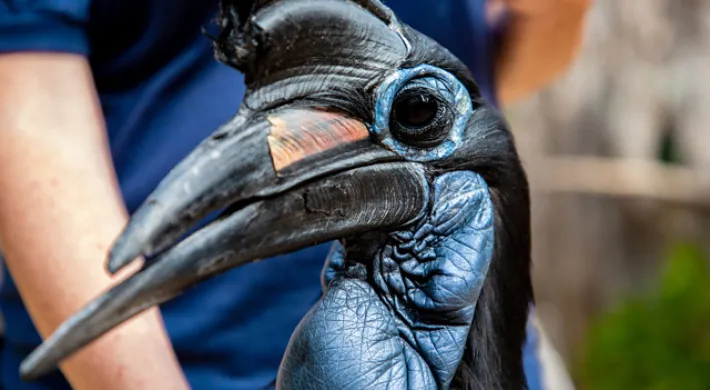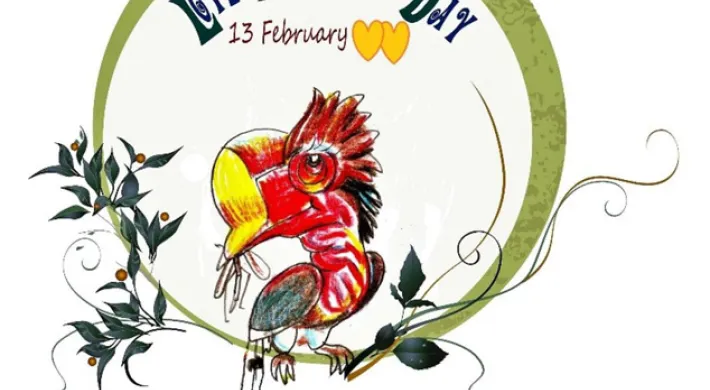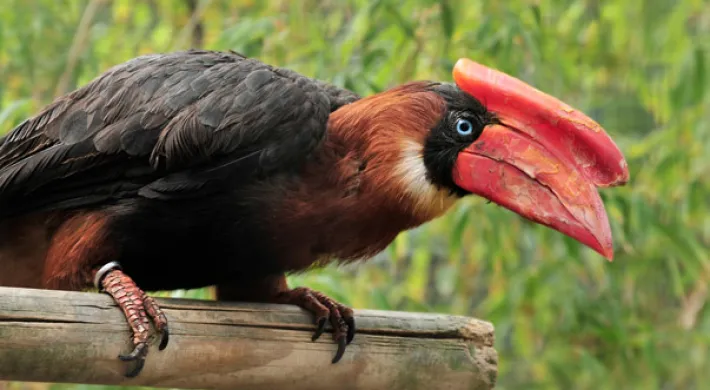Written by Roger Sweeney, Director of Animal Management and Welfare, North Carolina Zoo, SAFE Asian Hornbills Program Leader
The day before Valentine’s Day, February 13, was designated “Love Hornbills Day,” as the appropriate day to celebrate and raise awareness for Asian hornbills, known as a symbol of love and fidelity, as they are monogamous and mate for life.
Love Hornbills Day was originally created and celebrated in Thailand, home to 13 hornbill species and a hornbill research capital, and has grown to be celebrated in many Asian countries.

Love Hornbills Day logo!
These magnificent birds are some of the largest and most visually striking birds in the world. Not only are they stunningly unique, but they are important for seed dispersal to maintain healthy rainforests across Asia, thus their nickname as “Gardeners of the Rainforests.”
The North Carolina Zoo is excited to be welcoming Asian hornbills – most likely rhinoceros hornbill species – to the “Asia” zone, currently under construction; a highly anticipated addition to the existing “North America” and “Africa” sections, like the Zoo, continues to grow as the largest natural habitat zoo in the world.
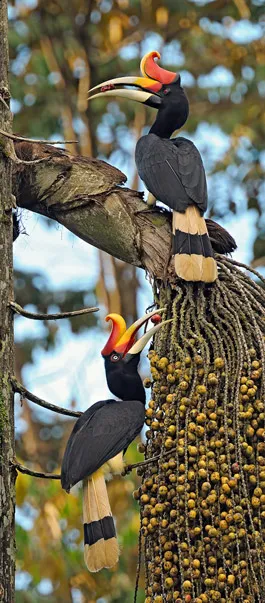
Rhinoceros hornbill
Asian hornbills are highly threatened species from local hunting and habitat loss due to deforestation. To conserve threatened Asian Hornbills and the habitat upon which they depend, the Association of Zoos and Aquariums (AZA) formed an Asian Hornbill SAFE (Saving Animals From Extinction) program in 2020 and appointed Roger Sweeney, Director of Animal Management & Welfare at the North Carolina Zoo as the program leader. SAFE programs focus on species of highest conservation importance for North American Zoos.
This initial three-year Asian Hornbill SAFE Program Plan focuses on 15 threatened hornbill species, from five countries in South-East Asia: India, Thailand, Vietnam, Malaysia & the Philippines. The North Carolina Zoo’s current focus is on implementing conservation plans for the Sulu, Rufous-headed, and Visayan Hornbills, which are all endemic to the Philippines.
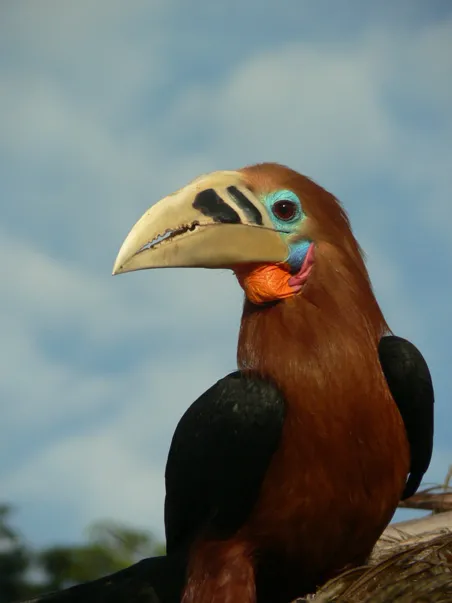
Rufous-headed hornbill
Nearly $1 million has been spent on Hornbill conservation and research since 2016 by 46 Association of Zoos and Aquariums members, including the North Carolina Zoo.
In the past year, the North Carolina Zoo was excited to support the first reintroduction of four Visayan Hornbills raised under human care, back into the wild on the island of Negros in the Philippines.
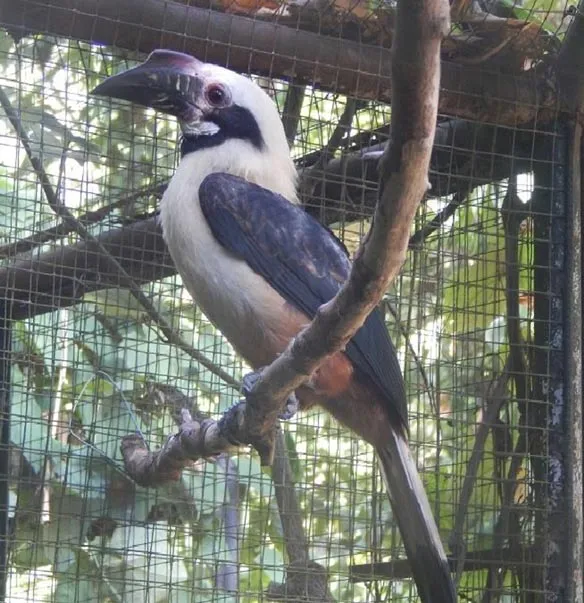
Visayan hornbill
The program also continues to implement a Sulu Hornbill conservation plan that includes populations surveys and habitat assessments on the island of Tawi-Tawi, Philippines.
The North Carolina Zoo and the Hornbills SAFE program welcome you to celebrate Love Hornbills Day on February 13th and learn more about the importance of this group of threatened birds and their essential role in maintaining our planet’s rainforests.
